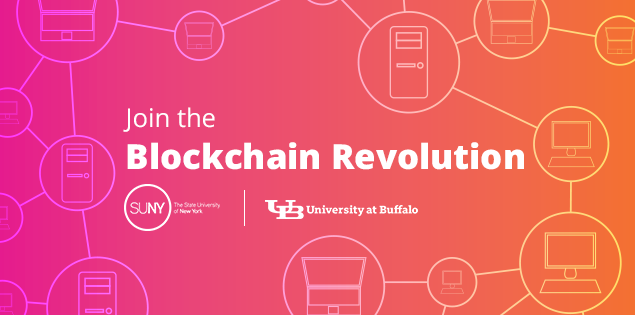Coursera Blog
Active Member

Blockchain is a revolutionary new technology and demand for blockchain talent is off the charts. In this groundbreaking new Blockchain Specialization taught by blockchain expert Dr. Bina Ramamurthy from the University at Buffalo, you can learn the basics and build foundational knowledge that will help you innovate with the next frontier in technology. We’re excited to introduce you to Dr. Ramamurthy as she shares what you can learn in this Specialization.
What motivated you to create this Specialization?
This Specialization of four courses is about the emerging technology blockchain. The blockchain ecosystem is advancing and expanding at an unprecedented pace. We need to educate people at all levels – developers, researchers, users and decision makers – to enable them to innovate and be informed users of the technology. The Blockchain Thinklab at the University at Buffalo wanted to educate developers and quickly ramp up their skills to program using a blockchain technology.
What is blockchain?
Blockchain is a technology like the Internet. Similar to how the Internet gave rise to applications such as World Wide Web (web browsers, servers) and email, blockchain is a protocol that enables a trust layer. This trust layer allows for peer-to-peer transactions among people who are beyond the boundaries of trust. The basic tenets of a blockchain that makes this trust layer possible are:
- a distributed ledger technology (DLT)
- a decentralized system where you/participant hold your assets, and
- disintermediation by validation and verification by the blockchain protocol – DDD
Who should be taking this Specialization, but maybe isn’t?
This Specialization is for anybody who wants to develop applications on the blockchain. They should have a working knowledge of a high-level programming language such as Java or Javascript. The first course is a basic introduction to the technology, and the last course in the Specialization discusses many platforms and successful use cases in the ecosystem. The second and the third courses focus entirely on design, development and programming applications on the Ethereum blockchain. All are offered at an introductory level. Anyone hoping to get an overview of the blockchain landscape can join our courses and get that idea. We discuss a broad range of aspects from best practices to emerging standards.
We encourage anybody curious about the blockchain technology to join these courses, even if they are not developers. You never know, this may be the technology that takes you from a casual observer to an involved developer of the technology! We are excited to share our knowledge to create a robust advancement of the field.
What can people expect to learn from this Specialization?
People can learn the basics of blockchain starting from its genesis in Bitcoin cryptocurrency. They will also learn about the robust foundation of the blockchain technology that has arisen from the research in cryptography and secure hashing. They will learn about Ethereum blockchain and about the development of smart contracts for solving problems on the blockchain. They will learn about the development of decentralized applications (Dapp) on Ethereum test blockchain.
Learners will be able to write applications that require automatic validation and recording of transactions on the distributed ledger of the blockchain; and also applications that require provenance and governance including rules, regulations and policies. For example, in a recent blockchain hackathon in Buffalo, students from our university completed Dapps for efficient third-party verification for a financial institution, supply chain management applications from diverse domains like food and chemical industries, and a patient-centered healthcare application that lets a patient control their health data assets.
Innovate with the next frontier of technology in the new Blockchain Specialization.
The post Learn the Basics of Blockchain: Q&A with Dr. Bina Ramamurthy appeared first on Coursera Blog.
Continue reading...
